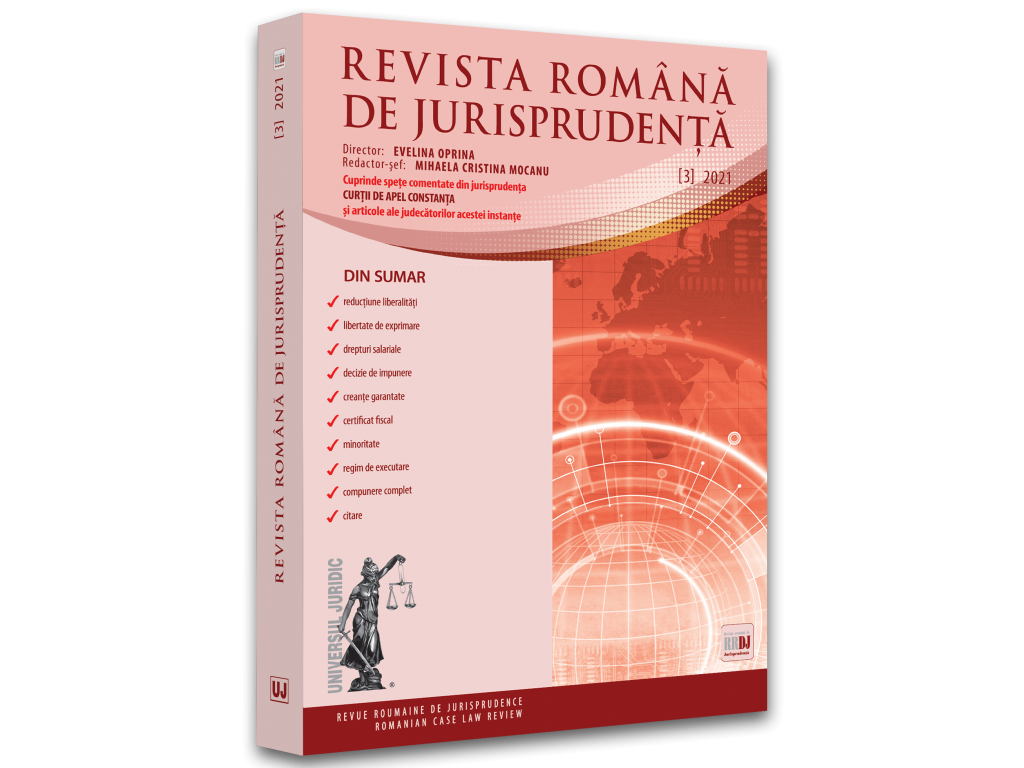Reduction of excessive gifts. Main statement of claim in the absence of claims relating to the succession proceedings. Determination of the estate
DREPT CIVIL ŞI DREPT PROCESUAL CIVIL
Abstract
The issue of reduction only arises after the opening of the succession and only operates if the entitled heirs expressly request it. This is because although the reserve is an institution of public order, its effects are not automatically produced in the person of the heirs who cannot be completely disinherited, but they must take an active stance in order to make use of that right.
In accordance with the provisions of Article 1094 of the Civil Code, the reduction of excessive gifts may be achieved by agreement or, in the absence of such an agreement, may be invoked before the court by way of objection or by way of action, as the case may be. These procedural means of invoking the reduction – the objection and the action – are used depending on the specific situation of the such heir who cannot be completely disinherited and whose reserve has been affected as a result of the gift granted by the deceased, more specifically on whether or not he/she is in possession of the property which was the subject of the gift.
In the present case, the claimant, an heir who cannot be completely disinherited, is not in possession of the property subject of the gift, so that the law allows him a direct action for reduction of the excessive gifts, and he does not have to defend himself, by way of objection, in a division in which he is required to hand over an asset to the person who has the capacity of grantee.
In considering that it is necessary to refer to the court the specific requests specific to the actual debate of the succession, the successive courts ignored, on the one hand, the autonomous nature of the action for reduction deduced from the provisions of Article 1092 of the Civil Code, but also of Article 1094 para. (1) and (2) of the Civil Code and, on the other hand, they have inadvertently confused the operations which the court must carry out in order to determine the mass of the calculation, by reference to which both the inheritance reserve and the available share are determined, operations without which it would not be possible to determine whether or not a particular donation is subject to reduction. However, this is precisely the subject matter of the pending proceedings which the court of appeal, in agreement with the court of first instance, wrongly considered that it could not resolve in the absence of other claims and thus did not enter into the merits of the case.








